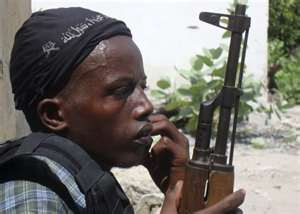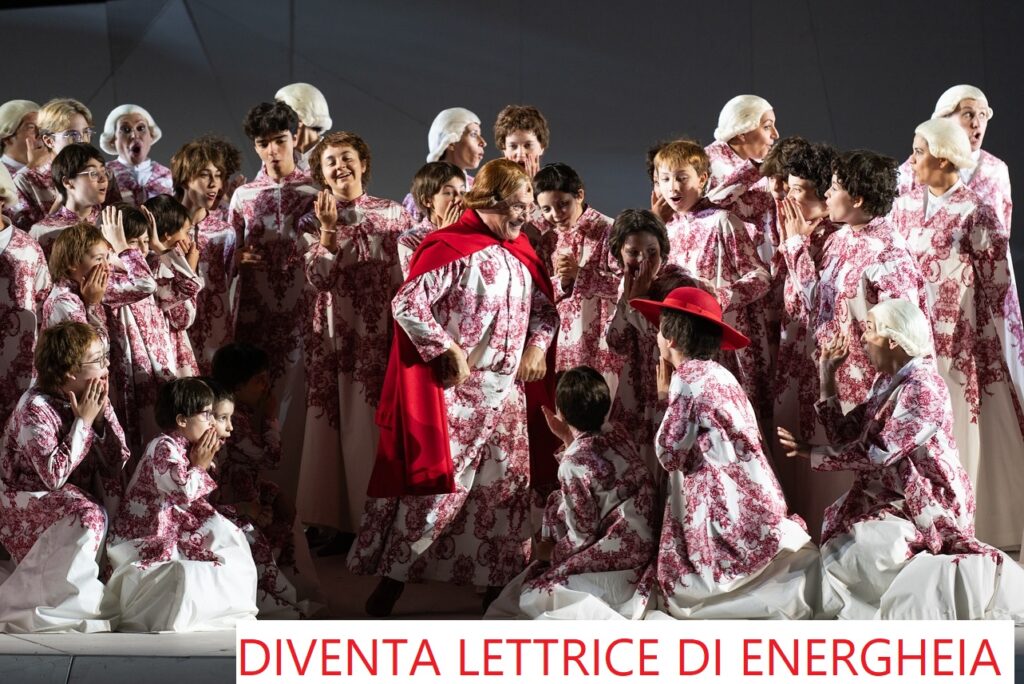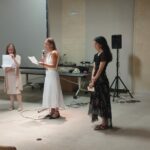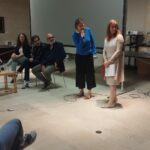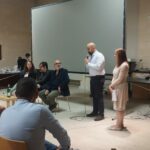Enemy of State_Mbugua Njoroge
None of his two visits to the city was appealing. He first went to see
his son who was being incarcerated at National Detention Chambers
this was necessary; he was told, for the preservation of public
security. He did not quite comprehend the statement. But he knew his
son was detained for his personal beliefs.
The old man sat on a wooden form on the back of pick up truck that
was transporting his son’s body back to the village for burial. His
eyes kept shifting between the coffin and Nyarari, his son’s wife. She
had been married five years ago. He felt agitated when he saw her
grieving for her aborted life dream. She had just celebrated her
twenty-eight birthday and here she was, a young widow.
He then fixed his eyes on the coffin below and was awestruck that his
only life investment was plucked from tree of life before it
blossomed. He looked at the wooden enclosure that had ingested his
son’s remains and felt disconcerted. This was a son who had made
him drain his coffers trying to educate him, with hope of better
returns thereafter.
When his son graduated with Master of Arts, like many people in the
village, he thought his long ordeal was over. He remembered his son’s
graduation that resembled a fairy tale wedding. People from across
ridges trouped to his home to witness the great event.
His son like many intellectuals, writers, lawyers and journalists in
Banana Republic were considered as subversive elements and
collectively they assumed the title of “Enemies of the State”.
This is why Mzee Wanduru was convinced that the state has
everything to do with the death of his son. He recalled how the
Security forces would ransack his house as they searched for what
they called seditious publications in his house.
They would insist that his son, who by now was teaching
Government Course at the National University, was poisoning his
students, by exposing them to the forbidden contents. He was accused
of reading Das Kapita and other proscribed texts and also for
belonging to a clandestine movement, calling itself Mwabanana that
was meant to sabotage constitutionally elected government of Banana
Republic.
His minds started trailing the onus of his son’s tribulations that
culminated to his death. Three weeks had elapsed and his son had not
shown up. Which was quite unusual of him, he paid them regular
visits in the village. However, a contingent of the BSI security
officers showed up one afternoon and informed him that his son was
detained at National Detention Chambers under Cap 107, Laws of
Banana Republic.
He was told he could visit his son at the detention if he liked but
under the BSI surveillance. He obliged. He was blindfolded during
the journey and the next time the hood was unfolded off his eyes he
saw his son holding onto gratings of a strongly fortified detention
chamber.
“Time is up!” detention warder yelled.
“Father! Take this and keep it”. His son tossed a notebook before he
was whisked back to unending detention corridors. He put it on his
coat. Then he was blindfolded and taken back home in the same way
he had been brought in.
He did not bother to remove the notebook from the pocket when he
reached home, what bogged him down was his son’s uncertainty in
the hands of dreaded BSI officers.
It was only this morning that he discovered the notebook inside his
coat’s inner pocket while going to collect his son’s remains at the
behest of government order. He waited for an opportune time to read
its contents; and that time came when they were returning back to the
village; escorting relics of his fallen son.
He dipped his hand into inner pocket of his coat and removed the
notebook. He opened the notebook and found it was his son’s own
handwriting.
“Take my regards to my wife and son. Inform her that I still hope to
come out of the detention to make real our lifetime dreams. I know
she is still petrified by what she saw when the dreaded Banana
Security Intelligence (BSI) called in our home. I suspect that they
must have planted some of their agents in the lecture room on that
day they arrested me.
Unfortunately on that morning I talked about Socrates who taught
youth free and inquisitive thinking. He rubbed the authorities the
wrong way. He was sentenced to die and was asked to choose
between hanging or drinking Hemlock, he chose the latter, I even
asked them whether they were ready to drink Hemlock for the sake of
Banana Republic.
I also reminded them of Jesus Christ who was forced to die because
he questioned the old school of thought. I gave other examples like
that Martin Luther King Junior whose belief in brotherhood of
mankind earned him an assassin’s bullet. “Stand by the truth if you
are patriotic. Our jails cannot contain all of us”, I concluded to the
bewilderment of my students.
So when I heard the incessant knocking on the door that evening, I
knew that the chicken had come back home to roost.
They forced their way in and forced us to wake up. They started
throwing our effects flotsam and jetsam.
My three-year-old son was askance and perplexed. He thought they
were robbers or thieves I could not stop them from their wild spree. I
just stood there, like a geographical feature, until they were done.
They don’t have shame I tell you, why should they do this to us, in
full glare of our son, yet President Wandahuhu is on the record as
saying that he wants to preserve African culture; he even dropped his
Christian name! Is this the African culture that he wants to preserve
and safeguard?
They then handcuffed me and I was escorted in the middle of BSI
security apparatus into waiting BSI van and they sped off to the
middle of nowhere.
I could hear cry of distress from my wife and son. She screamed but
no one could dare answer her. It was cardinal offence to be found
loitering aloud the street, leave alone going to answer a misery call.
People are rounded up daily in this city and you cannot tell who is the
member of BSI from the crowd, well: I did not know what it meant to
be a detainee in Banana Republic.
It is a taboo to talk about the issue in the land. It was only The Daily
Truth, that lived to its watchdog calling. It dared the government. By
carrying critical editorials and serialization of the dossiers implicating
the government.
The rest is dustbin. BSI officers ambushed their printing press; they
dismantled machines and impounded documents that they classified
as being treasonable. The editors were rounded up; the daily was
proscribed under Cap 177 Protection of Public Security Act. Later we
heard rumors, the Editor in Chief was killed and buried in a mass
grave.
To return to my story, they blindfolded me although it was still dark
and drove me at a terrific speed.
The cell doors flung open and I was told to take off my shoes and
socks. Then they thrust me in the cell then I heard footsteps
approaching to where I was sitting.
After awhile the veil was removed from my eyes and I saw three men
who wore camouflaged military attire. One of them, who seemed to
be their leader, ordered me to stand. He instructed me to strip naked. I
hesitated and he reminded me they were executive orders and I had
no otherwise but to obey.
The other two stepped forward and I started stripping me. I demanded
to be allowed to retain my pants but they said I had no authority to
give them orders. I was left naked for half an hour before one warder
threw to me worn to shreds kunguru to cover my body.
I felt very cold. The floor was very cold and flooding light made it
difficult for me to sleep. Then I asked the warder the time, he feigned
not to have heard from me, then he said, “Has time wronged you?
Why do you wrestle with gods? Why can’t you care for your wife and
children and forget about this business of wrestling with the
government of people?”
Early next morning I was removed from the room and taken to
another room painted in red. I was surrounded by 40 ft perimeter
wall. There was nothing there but deafening silence. I was given pail
to act as my portable lavatory, because as one warder reminded me I
was an enemy of state.
I just kept waiting for the worst.
At the expiry of forty eight hours I was blindfolded and thrust into a
van, I was then pulled out by two police officers, one on my left and
another on my right, each holding my arm, and then they pushed me
up the stairs. It was a quite struggle putting my foot on the stairs and I
missed a stair now and then to the amusement of the officers. After
what appeared like scaling Kilimanjaro, a door flung open and we
came to a leveled floor. The hood was removed off my eyes and I
found myself in a strongly illuminated room all men there wore
sunglasses.
“My name is ESB or if you are interested Enemy of State Breaker. I
deal with those who want to take our republic to the dogs. I am paid
to do this. I have to do this because I love my country. You are a
enemy number twenty-one. I cannot allow you, just because you have
your useless degrees, to subvert the government”.
“What can you tell me?”
“I am feeling sick can I see a doctor?” I answered.
“How can a doctor paid by the very government you are subverting
come to attend to you? Why can’t you ask your foreign masters to
come to your help?”
“Now tell me because, others have testified against you, do you
belong to that naive group of hooligans calling itself Bwabanana, no
Mwabanana?”
“No”, I said.
“Take him to B”, he growled back. I was taken by two or three
warders and showed me into a gloomy room. After ten minutes or so
they switched the light to let me know my new cellmates. I nearly
screamed when I saw three dead bodies lying on the floor. Then lights
went off for about an hour and they repeated the same for the whole
night.
The next day I appeared before ESB, “have you learned the lesson
professor” he asked, “Do you or don’t you know about Bwanana I
mean Mwabanana”, he implored.
I was silent for I had nothing to say.
“Take him to C”. He ordered. It was a well-illuminated room with
several armchairs. Then I was told to sit on one chair. When I had
taken my position, they came and chained me against the chair and
switched on current. I was sure that I was being electrocuted. They
would switch it often, and then they would look at me and laugh at
my peril. ESB entered the room and asked one of warders to pluck off
finger of my thumbnail.
He approached where I was held the finger above my nose and said,
“Prof… are you ready to tell us what we want?”
My heart started telling me confess! Confess. I feared that the
protracted torture would destroy my resistance. I nearly believed what
he was telling me; that I was the enemy of state and I even thought of
begging for mercy. But the other person in me stood its ground. “How
can you confess of something you don’t know?”
ESB said he was giving me that night to think about it, “Whom do
you think you are Prof? Banana Republic is greater than all of us.
Remember by confessing the truth you will attest that you love your
country. By refusing you will be saying to us to hell with your
republic. The choice is yours”.
The notebook was over. He then heard somebody saying, “Let
remove the body. We have arrived”.
It was at this time when he realized that the journey from City to
village was over. The coffin was put between two stools and the burial
ceremony begun. Yet none of mourners dared to discuss the death of
his son. Tension was everywhere. When revered Father stood to
conduct his mass he said, God called him to be with him. He is better
than us here. No more worries and pains. He has done his part in life.
His wife and son came, stood by the coffin and shed their tears. His
relatives too came and saw their son and a brother. It was an act of
God. His actions are not questioned. God called him hence.
He was interred in his grave, his wife, son and parents planted
flowers silently. The flowers still grow silently and the wife, son and
parents are still waiting in silence for the day.
Appendices
Kunguru: Uniform worn in the Kenyan prisons;
Das Kapita: Book authored by Karl Marx.

